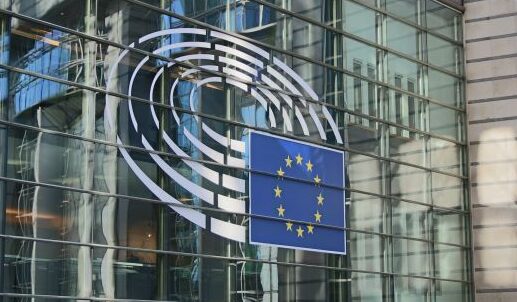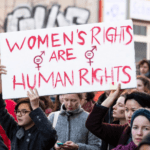
On Thursday, the plenary urged the EU to respond to coercion and manoeuvres by authoritarian regimes to silence opponents and dissidents abroad.
Human rights defenders are a fundamental pillar of democracy and the rule of law and are not sufficiently protected, say MEPs in an own-initiative report adopted by 512 votes in favour, 76 against and 52 abstentions.
The report says that 80% of cases of transnational repression are the responsibility of ten countries: China, Turkey, Tajikistan, Russia, Egypt, Cambodia, Turkmenistan, Uzbekistan, Iran and Belarus. The text notes that over 1,200 direct physical incidents have been recorded in 103 countries in the last decade.
Targeted killings, Interpol abuse and digital surveillance
This is the first time that Parliament has adopted a detailed definition of transnational repression. According to MEPs, it is “attacks and threats by states, authoritarian regimes and their proxies, aimed at defending and promoting their interests by acting across national borders to coerce, control or silence dissidents, political opponents, journalists, activists, human rights defenders and members of the diaspora”. The report details a wide range of physical methods: targeted killings, abductions, violence, harassment and forced returns, disappearances and expulsions.
The misuse of legal instruments is also part of the arsenal of threats against these activists, through consular services, extradition proceedings, arrests or abuse of Interpol ‘red notices’, and accusations of terrorism or national security. MEPs also denounce non-physical methods such as digital surveillance, intimidation, blackmail and threats to the families of human rights defenders.
Need for coordinated action at EU level
New technologies, in particular artificial intelligence, malicious data sharing and espionage, are increasingly important forms of transnational repression, says the text. MEPs call on Member States and the EU to recognise, prevent and combat digital repression, including disinformation campaigns against activists, and to ensure that private companies in the technology sector are held accountable, by publishing transparency reports and establishing effective complaints mechanisms.
In EU agreements with third countries, MEPs call for transnational repression to be systematically challenged by introducing a monitoring mechanism for human rights clauses. In addition, they stress the need for strict market surveillance and a ban on the export of spyware and dual-use goods to authoritarian regimes guilty of transnational repression.
The text calls on the EU to hold states and perpetrators of transnational repression accountable through targeted sanctions and the implementation of the EU’s Comprehensive Human Rights Sanctions Regime (European Magnitsky Act).
Declaration
Rapporteur Chloé Ridel (S&D, France) said: “Physical threats, poisoning, spyware, online harassment, cancellation of passports… authoritarian regimes persecute their opponents beyond their borders and increasingly on European soil. So far we have allowed it. It is time to put an end to it. Europe must remain a safe haven for those who fight for freedom and democracy”.
Background
Parliament actively supports international efforts to promote democracy and human rights around the world. Each year, MEPs award the Sakharov Prize for Freedom of Thought to human rights activists. In 2025, the Sakharov Prize was awarded to imprisoned journalists in Belarus and Georgia, Andrzej Poczobut and Mzia Amaglobeli.
Read more : European Parliament






Leave a Reply